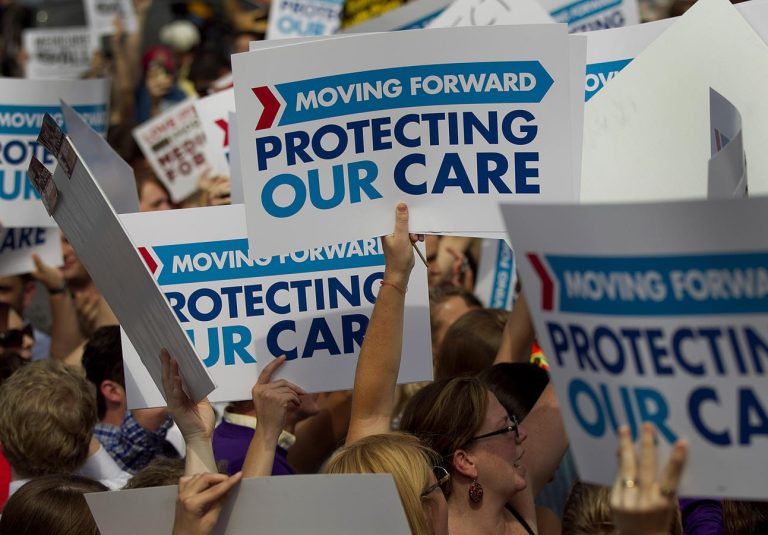How the health insurance industry can move forward after the tragic United murder … (+)
Almost all of my colleagues in the health insurance industry believe they promote affordability and access to care.
It’s clear that what the health insurance industry thinks of itself matters little to an angry public whose bitter outrage was exposed after the senseless assassination of United Healthcare CEO Brian Thompson.
They are outraged that health insurers are not paying enough for needed services.
They are outraged that health insurers deny or delay needed services in the interest of profit.
And they and their doctors are outraged and tired by the constant battle with insurers to get coverage for what they need to live.
How we got here requires a complex review of the history of American health policy – but the “how” doesn’t matter for now. What is clearer than ever is that health insurers must quickly restore the trust of the American public.
Where will this confidence come from? It starts with ending denial. And say out loud: “we made a mistake”.
Health insurers got it wrong when they started selling high-deductible insurance plans that turned patients into consumers and told them they needed to “do their part.”
Health insurers made mistakes by negligently introducing unnecessary delays in care and ignoring the personal circumstances of policyholders.
Health insurers made mistakes when they stopped advocating for the rights of patients facing life-altering medical problems and washed their hands of their responsibilities.
And, more recently, they erred when they stood behind tired industry arguments – or said nothing at all – when people needed recognition of their suffering and pain.
Healing must begin with saying out loud what every wronged person needs to hear when they have been wronged: “We are sorry.”
When people like me who work in health insurance embark on their professional journey, they often do so with the goal of making things better for people. But, along the way, our Frankenstein healthcare system has taken them in directions they never wanted to go, individually or collectively.
And they need to improve things, quickly.
A first place to start is to significantly improve patients’ daily care experience.
When they need help – in the form of an authorization or referral – health insurers should not act in the days or weeks that have become “normal,” but rather act with real-time urgency that a patient feels when their life is in uncertainty. balance. Too many people feel like their insurer is standing between them and necessary or life-saving treatment.
And that’s wrong.
While there is justified skepticism about using artificial intelligence to deny coverage, it can help enable approvals that facilitate care when it is needed.
A second opportunity is to provide more transparency.
Every step of the way, American health care creates confusion and obfuscation. Fear of surprise medical bills and uncovered services has become a harmful deterrent for people seeking medical care. Sometimes members of my own family delay needed care because, like millions of Americans, they’re afraid of the bill they might have to pay on the other side.
To regain the trust that insurers and health systems have both depleted, the two groups must partner to give people greater transparency about the true expenses they face at the point of care. and stay true to that. The price transparency rules implemented in 2021 are a step in the right direction, but more needs to be done to make this information simpler, more user-friendly and more reliable. In the absence of such transparency, we fail at the most fundamental imperative of any business that none of us would tolerate in any other context: telling you how much something costs. Before you buy it.
A third opportunity is to focus more on the prevention and management of chronic diseases.
Health insurance companies manage costs by negotiating prices for services. But what if people needed fewer services because health insurers were successful in keeping patients healthy?
The science of chronic disease management and prevention has advanced significantly. And yet health insurers, including federally funded Medicare and Medicaid, generally pay more to manage the costly complications of chronic diseases than for primary care focused on preventing those complications.
How different would our national burden of disease be if health insurers thought more about long-term health and well-being than annual actuarial cycles? Because coverage is tied to employment and employers change staff quickly, this has been difficult to implement. The health insurance industry’s policy advocacy needs to focus on long-term enrollment and coverage portability so it can invest more deeply in your health.
A final opportunity is to commit more authentically to being who they say they are.
Health insurers claim they are simplifying your healthcare experience and often fail to do so.
They say they care about you as a “whole person” but create discontinuities in your care.
They say they work as advocates, but sometimes people have to fight them every step of the way.
Every industry has self-perpetuating narratives and apocryphal stories about societal impact.
Following the events of the past few months, it is time for American health insurance companies like mine to recognize that our narrative is tired and broken.
And to say out loud what everyone needs to hear right now: we are sorry and we can and will get better.


